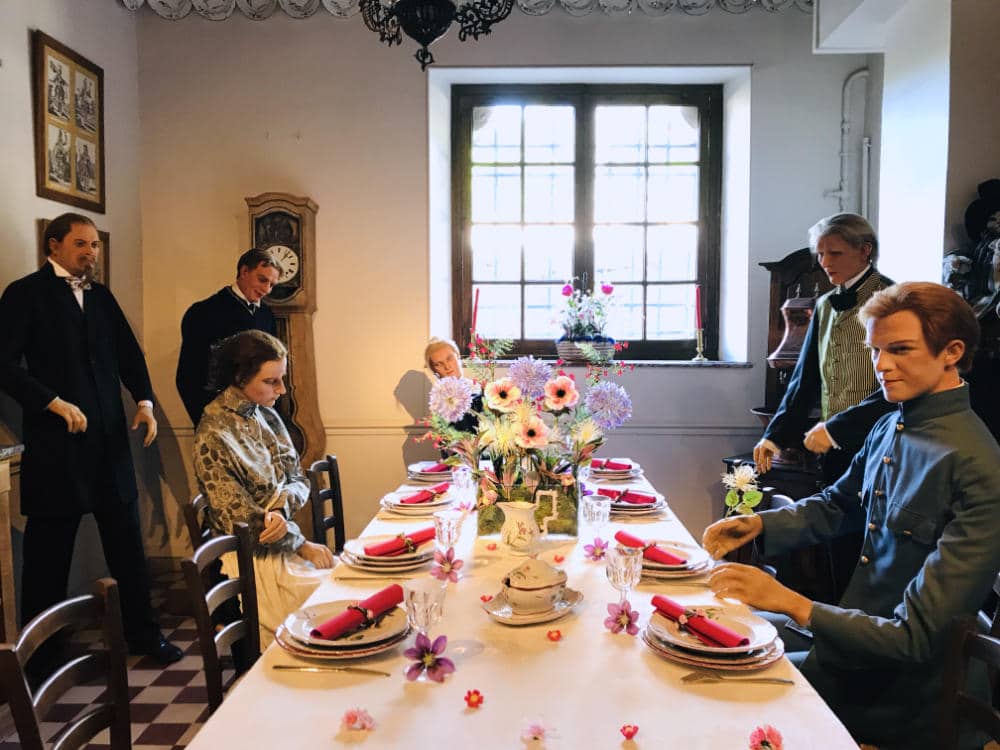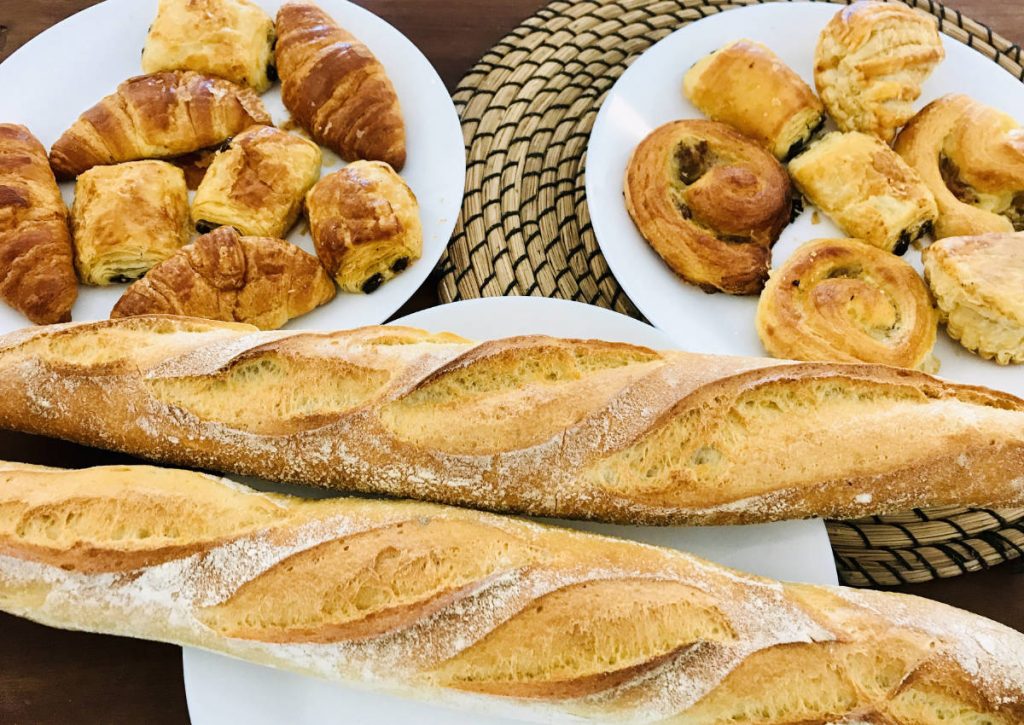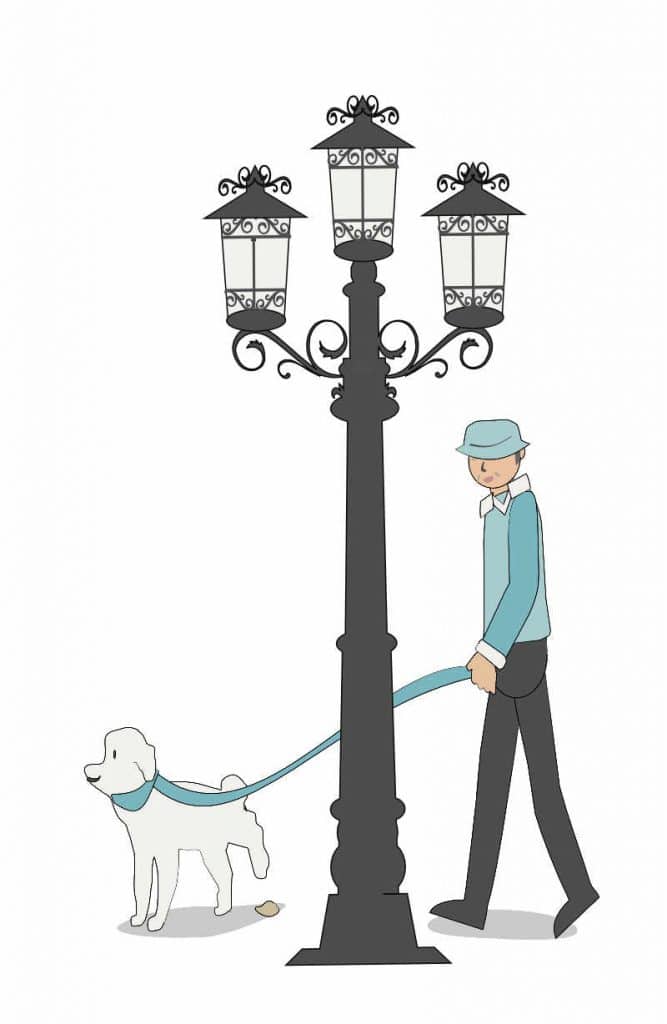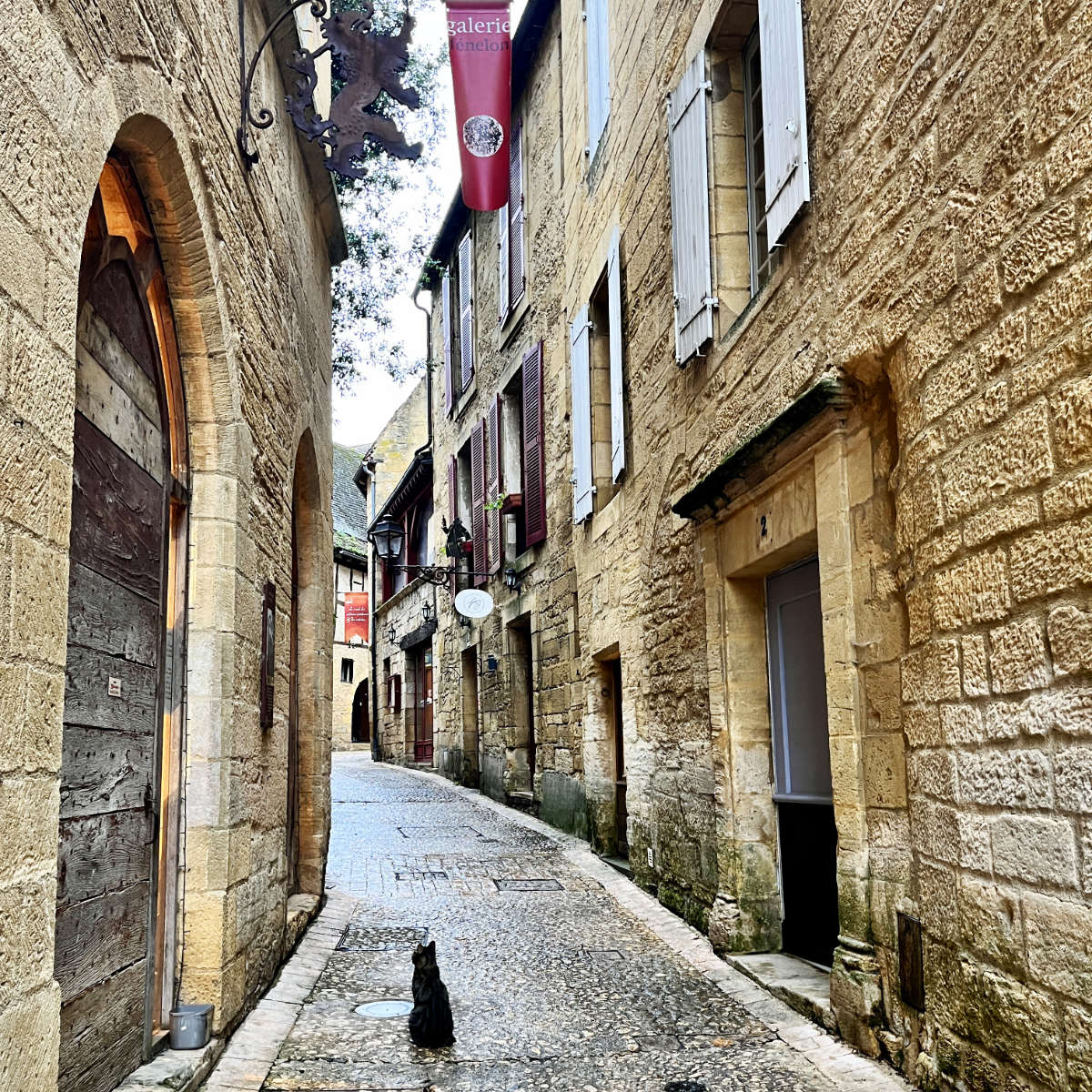In a country as old as France, you can bet that the French have many superstitions. Many of these superstitions date back to the Middle ages or even antiquity and they are all about warding away bad luck and evil spirits.
If you are wondering the French word for “superstition”, it is the same, just pronounced with a French accent. Other common French vocabulary is:
- auspice – omen
- chance – luck
- bonne chance – good luck
- présage – foresee
I’ve gathered the most common ones that you’ll hear these days across France, some funny and some serious. And some that you can even follow today, if you so wish. So let’s get to it, shall we? Allons-y!
Brings Bad Luck
1. Don’t light three candles with the same match.
In France, it is believed to be bad luck to use the same match to light three candles. This is believed to date back to WWI, when having a smoke was one of the few ways for soldiers to pass the time in the trenches.
It was believed that lighting the 1st bud with a match would alert the enemy sniper, the 2nd second tells the sniper your location, and by the time the 3rd was lit, the enemy is ready to shoot.

2. Don’t give chrysanthemums or carnations.
Each culture has its own rules about the significance of different flowers, and France is no exception. Carnations, for example, are best avoided in France as they evoke passion and deceit.
And chrysanthemums are associated with cemeteries, and so are not offered to friends or families in France. On the other hand muguet (meaning “lilies of the valley”) are offered on May Day to bring good luck over the rest of the year.
3. Don’t sweep a broom at night.
Even if you are a clean freak, if you are French, you will have to resist the urge to sweep. The broom was said to be given to witches by Satan to move around, and so best avoided by those who are superstitious after nightfall.
Similarly, the French try to avoid sweeping with a broom on All Saints’ Day, New Year’s Day and Good Friday, to allow the departed souls to find their own way to eternal rest, rather than pushing them out.

4. Don’t pass someone on the stairs.
In France, at one point in time, crossing someone in the stairwell was considered bad luck.
The superstition dates back to the time when the stairs were narrow and enemies could easily and discreetly stab you from behind. In practical terms though, you would be hard pressed to follow this rule the Parisian metro!
5. Don’t give knives as a gift to friends or family.
Even if you see a beautiful knife set, giving a set of knives as a gift in France is a bad idea. The superstition says that it means that you are willing to cut off your friendship or family member.
You could try to offset this by accepting a coin from them as payment, to say that you “sold” the knife set, and then continue as friends. (Or you could just offer the giftee something else!)
6. Don’t knock over the salt.
In France, spilling salt on the table is said to be bad luck. This stems from ancient times where, at the time, salt was a precious commodity to allowed food to be preserved. Wasting such a precious resource was seen as rather unforgivable.
In addition, it is said that during the last meal of Christ, Judas knocked over a saltshaker on the table.
7. Don’t seat 13 people at a table for dinner.
And speaking of Judas, another French superstition to avoid seating 13 people at a table for dinner. So including the hosts, you would want to invite the appropriate number of people to not land at 13 around the dinner table.

It might seem odd that there are so many religious superstitions since the French République loudly vaunts its laicité (secularism). However before the 1789 revolution, the Catholic Church had a major role in governing the lives of people. These old traditions do not fade easily.
8. Don’t cross a stream holding a cat.
One of the more random French superstitions is to avoid crossing a stream holding a cat. It doesn’t matter if the cat is black or any other color, but this is supposed to be a sign of bad luck.
9. Don’t wear green on stage.
If you are a French actor or performer, dressing in green on stage is considered to be bad luck. No it doesn’t have anything to do with todays CGI and green screen, instead this superstition dates from the time of Molière, the famous writer and playwright.
According to legend, Molière died on stage while playing Le Malade imaginaire (meaning “The Imaginary sickness”) on February 17, 1673. The costume he wore for his role was said to be green, although multiple reports say it was actually red. (He died of tuberculosis.)
There are another couple of explanations however. At the time, the textiles were painted green using a mixture of toxic copper, cyanide, vinegar, and even urine, that were possibly harmful when inhaled.
But it could be as simple as the lighting in theatres in the 17th-18th century, before the invention of electricity, made green a difficult to see on stage. Regardless of the true reason, in France wearing green on stage is considered a big no-no.
10. Don’t place your purse on the floor.
It is not clear as to when this superstition dates back to, but with your purse out of your sight at a bar or restaurant, you can expect a bit of bad luck.
Paris in particular, is unfortunately tends to has always tended to attract the pickpockets, so it is better to not keep your belongings where you can’t see them.
Brings Good Luck
1. Make eye contact when proposing a toast.
The superstition in France is that if you must make eye contact when clinking glasses as you are toasting. Otherwise you are looking at 7 years of poor bedside relations and be unlucky in love. As you can imagine, this is one rule that French people stick to quite religiously.

The tradition dates back to the Middle ages when poisonings, especially among nobility, were somewhat common. The idea of looking closely at your drinking partner was a way to check their intentions. If one of the drinkers looked away or seemed uncomfortable, this would be a sign to inspire mistrust.
In addition, by banging the cups somewhat violently, it would be possible for some of the poison to fall from the cup onto the other’s meal and so also imply a sign of confidence.
2. Place bread on the table the right side up.
The tradition of placing the bread upside on the table also dates back to the Middle Ages. At mealtimes, the restauranteur would reserve a table for the executioner, by placing a baguette upside down on a table the day of executions. (He needs his strength for work after all.)

This way, when the executioner arrives, he could easily locate it. No one wants to mess with the executioner, so everyone around would know that that table was reserved and to stay away.
3. Throw salt over your left shoulder to chase bad luck away.
Even though spilling salt on the table is bad, in France you can reverse any bad luck by throwing a few grains of salt over your left shoulder.
The tradition dates back the belief that Satan would be seated on the left shoulder, and so here you are throwing salt into his eyes to ward off evil.
4. Touch a piece of wood.
Like in many countries, touching wood to avoid bad luck is a common superstition in France.
It actually dates back centuries, to ancient Egypt, where wood was believed to radiate magnetism and positive energy. The Greeks also considered trees to be sacred, a manifestation of their supreme god Zeus.
Eventually, Christians started to associate wood with the cross on which Jesus perished. Touching wood became a type of prayer, a way to protect oneself from misfortune.
5. Watch a ladybug fly.
This superstition about ladybugs comes from a legend in the 10th century. It is said that thanks to a ladybug, “a condemned man was pardoned by King Robert II the Pious.
He saw a ladybug on the neck of the prisoner who, despite the executioner’s attempts, stubbornly refused to fly away. Thus, he took it as a sign from God there and immediately released his prisoner, “convinced of his innocence”.
It is said that seeing a ladybug fly away brings good luck and that it can indicate the weather in the days to come . If she lands on you, the number of black dots she has on her back with grant you that many happy months in the upcoming year. And if you make a wish, she will take it to heaven.
6. Step in dog poo with your left foot.
Any visitor to Paris will have noticed that the French are not as conscientious about picking up after their pets as they ought to be.

On the positive side, stepping in it with your left foot is supposed to bring good luck! Watch out though, because stepping in it with your right foot is said to bring misfortune.
7. Move the dining table into a new house first.
For the French, if you are moving into a new house, never mind carrying the bride over the threshold. Instead, you need to make sure you bring the dining table in first for plenty of bountiful food and good fortune.
This is one French superstition is supposed to fill your new home with much love and luck (or just make it easier to unload the rest of the furniture!)

If you enjoyed that article, you may like to read more about French taboos. A bientôt!




